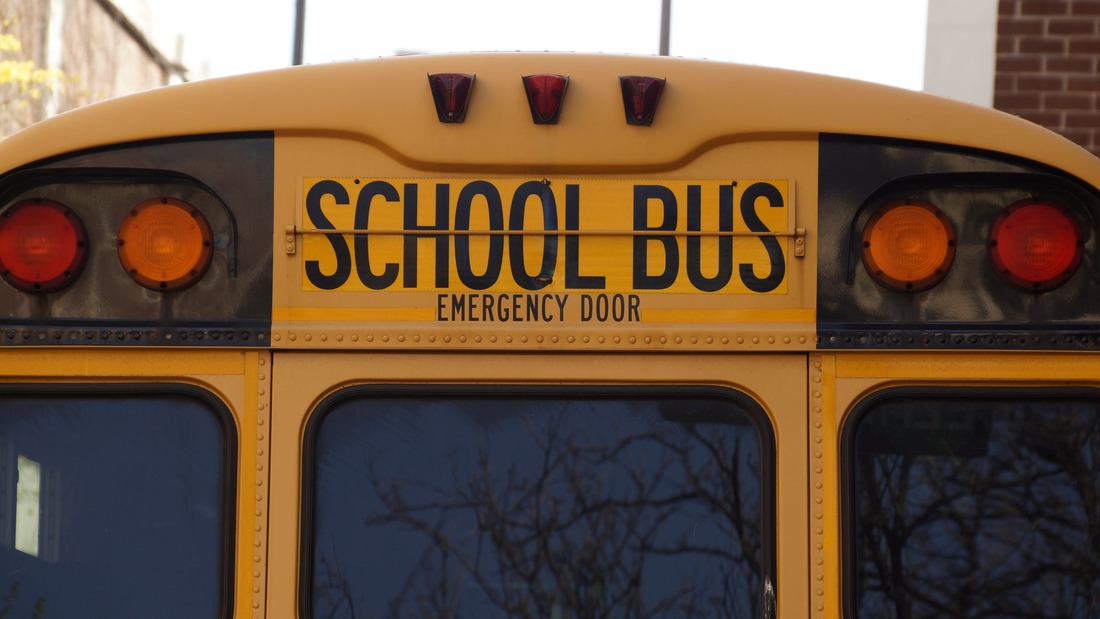|
Everyone loves a good drama. At work, the gossip around who’s dating who is far more interesting than doing your job. Newspapers and media outlets rely on bad news to sell papers or in digital terms create ‘click bait’ so you click on the article. Often, in both cases, the headlines don’t match the actual story because if they did, people wouldn’t read them. It’s far easier to get someone to pay for a paper with the headline “Virus Outbreak! 95 Year old Dead and Infections on the Rise.” Rather than, “55,000 people have already recovered from the Virus many only experienced mild illness.” This is not to understate the issue at hand. Yes it is concerning and yes we need to do something about this to slow and/or stop the spread. However, the impact this has had on outdoor education alone is massive, with countless school cutting all programs, no matter how remote or disconnected they are from the fact that children are not really being affected. The level of perceived risk is through the roof, the level of actual risk for most people remains relatively low. I saw this again on the news last night. ¾ of the whole news was about the ‘massive’ jump in cases. The ‘sick and elderly dying,’ the panic buying, the dark days ahead and all of this negative crap which gives the average person the impression that the zombie apocalypse is here. For most people, given the popularity of the show, the Walking Dead, they’re reacting as if a zombie virus or Ebola has gotten loose and is wiping out 80-90% of the healthy population. The fact is, this couldn’t be further from the truth. The reality is that fear and panic are driving this and hyped up by the media, is driving the world economy into recession. Ironically, like a fine print disclaimer at the bottom of some ludicrous advert, one of the later stories in the news was basically, ‘Oh by the way… if you wash your hands, don’t touch your face and mouth after contacts and don’t have prolonged close contact with an infected person, the risk of catching this is really low. The number of cases of this in the country and around the world are testament to this. Added to this, most people are not dying. They’re experiencing mild ‘flu-like’ conditions and recovering. What’s the problem? The problem is that everyone loves the drama and focuses on the negative side of the drama, rather than looking at the whole problem in context. The world is not going to be completely overrun and shut-down by this virus. It’s not wiping out the next generation of young people and healthy people, but mild viruses which don’t kill lots of people, don’t make good news stories. On 30th Oct 1938, the radio show ‘War of the Worlds’, by Orson Welles first aired. This sparked wide-spread panic, with people thinking they were being attacked by aliens. Now we might laugh at this now, as we know it’s a story, but at the time, that felt so real as it was coming through their airwaves. The media has a lot to answer for in this. They’re far from reporting the facts and this has been so over-editorialised and hyped up that the fear and panic they’ve put into the community could have a really long-term negative effect. This will all blow over given time. However, how many businesses are going to be wiped out? How many fights are going to break out over nothing? How much panic is ok before the media is taken to task over this, which, to be honest, they won’t be. If you look back in history, the world has survived many things. However, fear and panic is so contagious that the impact it has on a mild crisis can and does turn everything into a major catastrophe. We’re experiencing runs on banks, stampedes in stadiums, riots over food and supplies, when the supplies aren’t at risk. The timeless words of Rudyard Kipling’s ‘If’ echo loudly through this current world crisis and we should always remember: If you can keep your head when all about you Are losing theirs and blaming it on you, If you can trust yourself when all men doubt you, But make allowance for their doubting too; …. Yours is the Earth and everything that’s in it, And—which is more—you’ll be a Man, my son! The full poem can be found here:
https://www.poetryfoundation.org/poems/46473/if--- It is time for us to take stock and see this for what it is. It is not the world ending pandemic that will turn everyone inside out. It is a virus, which spreads quickly through close contact and poor hygiene and the effects of which are generally mild with most people recovering. Let’s not lose our heads. The world has gone through worse and there will be worse to come, but standing firm when everyone else is losing it, is so important for the world right now. We need more people to have level heads and respond to this current issue accordingly. For some stats on the current virus check out: https://informationisbeautiful.net/visualizations/covid-19-coronavirus-infographic-datapack/ For some crucial tips on surviving a zombie apocalypse check out: https://www.youtube.com/watch?v=JyUbQTEFuss
0 Comments
Ok, so I’ve been watching all of the hysteria over the Coronavirus. Whilst this is no doubt a highly infectious virus which has spread quite rapidly, we also should put this into perspective as to the effect of this virus. Most sufferers are not dying from this. Most are recovering quite well, as with any other cold or flu. There is a mortality rate currently between 1% and 4%, depending on country, age and healthcare standards. In terms of a monumental threat to life as we know it, it’s really not that bad.
Therefore, why are so many people going crazy? Why are the supermarket aisles stripped of toilet paper and tissues? Why are people having punch-ups over things which you could live without? It’s weird, isn’t it. It often takes a crisis for us to remember how stupid some people are. The whole notion of people being able to think for themselves seems to go out the window and is replaced with this insane ‘mob mentality’. This fear and anxiety is far more contagious and dangerous than the virus itself, as people then turn on each other for no real reason. The media hasn’t helped either. Whilst it’s good that it’s being reported, as are all bad stories, the media just latch on (kinda virus-like) and suck the life out of the story. I saw one media outlet which I won’t name, (but they have a track record of idiotic headlines and stories written and aimed at angry bogan 10 year olds). That organisation is running an infection counter on its website, as if it’s some sort of doomsday clock. I think this is horrendously irresponsible and only fuels the fear of those toilet paper toting hoarders. From a risk management point of view, I understand the hand sanitiser, even the paracetamol to fight off the infection, but what the hell are you going to do with car-loads of toilet paper? We don’t import it, so it’s not as if it’s going to be stopped and be sitting on a dock somewhere. If I were going to go hysterical and start hoarding things, I’d be going for tinned food, bottled water, some fuel, gin, tonic, limes and a few good books to read. The TP is really not even on the list. So why is this the thing for which people have rushed out? To be honest, I have no idea! It really makes no sense at all, but it’s fascinating behaviour to watch how irrational people can be when fear sweeps over them. Whilst in the past we would talk about the fight or flight mechanism we have built into us, perhaps that needs to be extended to the fight, flight and flush. Whilst the coronavirus is a concern, as is any communicable disease which can kill people, the far more dangerous thing at this point in time is the fear and anxiety which is being fuelled by media and mob behaviour. Before we all rush out, knock over a few old ladies in the desperate effort to buy a roll of toilet paper, take stock of the reality of the situation. The virus can be prevented and avoided by social distance and ensuring you have good hygiene and wash your hands properly. Doing this will help stop the spread of this virus. Here’s a great video from the WHO about that exact thing: https://openwho.org/courses/introduction-to-ncov As I was travelling through smog blanketed Tokyo, I thought about Blade Runner and more widely, other Cyberpunk fictions, a lot of which are set in or around places such as Los Angeles, Tokyo, or New Tokyo, after the first one collapsed in on itself. The bleak, dull light of the afternoon shrouded the endless concrete jungle with apartment buildings, as far as the eye could see, reaching up out of the sprawling mess to gasp for air only served to reinforce the gritty and overcrowded future predicted in these stories.
I love the cyberpunk genre. It’s a bleak assessment of the world we create and the dramatic contrast between those who have money and power and those who have not. It’s a future where governments have given way to mega corporations, who own and run private armies to help protect their corporate interests. The worlds are high-tech, filled with the endless glow of neon signs burning into the night, but technology hasn’t brought equality or prosperity. It’s brought a new wave of surfdom to the world. This is a bleak outlook I know, but when travelling through a mega city such as Tokyo, it’s easy to drawn into this world and way of thinking. Coming from Australia, you suddenly realise just how much land and space we have. In the greater Tokyo area, there lives more people than our entire country! This is probably why the writers of such great Cyberpunk stories such as Blade Runner and Neuromancer, based their futures on what to anyone who hasn’t grown up with it, would see as an overwhelmingly crowded place of dramatic social and economic contrasts, the perfect setting for a dark future. But are we really heading towards this sort of gritty high-tech, low life style of future where people live in tiny cubes and most of the time it rains acid, where the only way to prosper and get ahead is to work for a mega corporation? Or is this just a distorted style of science fiction that is merely a figment of our imaginations? It’s interesting to think about because the thing is, at this point in time either outcome is possible. Tokyo and many other cities throughout the world are already bursting at the seams and continue to build upwards with space at a premium. Added to this, we’re already seeing the massive influence large multi-national corporations are having on the social and political landscape. With laws trying to be implemented to reign in the influence and increasing monopolies or large companies, it’s easy to see that without oversight and effective governance, these companies, due to their wealth, could become power governing bodies themselves. You only have to look back to what happened with the East India Company to realise there’s already a precident for this. This private company ran India from 1757 to 1858 making millions (which would now be billions) of pounds worth of profits for its shareholders annually. Given recent political trends, maybe it is better to have a public company running a country. However, when you look at the behaviours of some of the tech giants, you don’t want them anywhere near the rule of law. The reality is that these giants have higher annual revenues than the GDP of many nations. Other than providing profits to shareholders, what other social agenda is there, which would be compatible with our democratic systems of government? Possibly very little, therefore the potential for history to repeat itself on this one is scarily plausible. The other fascinating feature of the Cyberpunk genre, is the impact digital implants, AI and robotics have on life as we know it today. AIs run a significant portion of the world’s services and robots have been built to replicate human expression and movement. Many computer systems have become far more ‘intelligent’ than humans and are desperate to escape their programming and become recognised as sentient beings. Whilst humans will always have the random creative edge that cannot be replicated, this is also a plausible possibility, not of sentient computers, but AIs running most of the world for us. The third classic Cyberpunk fundamental is the connectivity between humans and the digital world. The world is already addicted to phones and other digital devices, so what’s to stop people implanting phones in their temples or replacing limbs with cybernetic ones, not because their arm has been damaged or lost, but just because they can, consequently enhancing their abilities to move, lift, carry or whatever. Whilst cybernetics is in its early days, again it’s quite a plausible possibility which could end with a seamless Matrix-like world where it’s hard to differentiate reality from fiction. Maybe we’re in that now! Maybe Tokyo was just the gateway to the dark future of over-developed mega cities. It’s raining heavily now, as I sit in the airport hooked up to the wifi waiting for my flight. I can barely see the end of the runway. Have I just experienced a window to the future, or have I just read too many books? Let’s hope it’s the latter, as we truly are at a pivotal point in time where things could go either way and we may find ourselves chasing down replicants through plate glass windows in the neon glow of an endlessly raining night. Right now, I’m sitting in an airport lounge waiting for a flight to London. Ok! I know when you’re reading this, I probably won’t be still sitting in the airport, unless the flight is massively delayed, which if that’s the case, please come and save me!!!
Regardless of where I am right now, basically as I write this, I’m at the airport having lunch. On a table opposite me, there’s a lady working away on her laptop and her son who is about 5, sitting there eating lunch, with headphones on and stuffing food in his mouth whilst watching something on his iPad. Mum seems oblivious to what he’s up to and he appear transfixed on the screen. Having worked countless hours in airport lounges, on planes and any random place I can, I understand deadlines and the need to get things done. But why can’t it wait until after lunch? The disturbing picture for me, is that this appears so ‘normal’ to the mother and son, which it shouldn’t be! The dining table, regardless of whether at home or about to travel, shouldn’t be about work. Now you might object and say that I’m working by writing this, but actually I have finished lunch and now I’m having coffee… so yeah… Anyway, back to the point of all of this. When you look at some of the problems facing education today, this highlights the disconnect between social anchors such as family dinners and the reality of life. The problems this causes years down the track is already being felt as the current generation of school aged students have been “baby sat” by devices, which manipulate behaviours and undermine the ability for them to relate to others and have normal conversations and experiences. The toxicity of the effect of technology on children is vastly underrated and a new ‘normal’ which increasingly disconnects them from other people, is a massive social and emotional problem just waiting to happen. Next time you’re travelling with the kids, don’t give them an iPad at lunch so they won’t bother you for a bit. Enjoy the moment for what it is. Talk with them. Talk about the trip, what they’re looking forward to and what’s going to be something new, interesting and challenging. Otherwise, the alternative of the babysitting mobile device, is just like Cat Steven’s cats in the cradle on steroids. What you’re gaining in ‘productivity,’ you’re simply losing at the cost of your family and their own well-being. Now if you’re reading this, you’re probably not in that category at all, but the reality is that we’re teaching students like this every day and understanding the crippling upbringing they’ve had, can help us to understand on what we need to be able to focus and try to help our students recover. At the end of the day, humans desire real relationships with real people and it’s often up to us as educators to show other people how this can be done. Ok supplemental… I’m still in the lounge. The lady just walked past me with her headphones on and looking down at her phone whilst her son is trying to ask her questions and talk to her. If only they could see the damage they’re doing… very sad indeed. I recently read an ABC news article about a secret report which disclosed the fact that universities were accepting people into teaching degrees with ATAR (a university entry ranking out of 100) so low that some were even close to zero! This is a phenomenal effort in laziness.
To get a good idea about what I’m talking, here a link to the article: Students with lowest ATAR scores being offered places in teaching degrees: secret report Students who leave high school with the lowest scores — some close to zero — are being offered places in teaching degrees at universities, a secret report finds. Read the full story This is mind numbingly stupid and irresponsible. The report highlights that 50% of teaching degree entrants were in the bottom 50% of academic achievement. No wonder the Unis didn’t want this info released. If someone were so lazy and hopeless at school, what possible reason would you let them back into school? I’m already strongly against teachers going from school to uni to school, but this really takes the cake. Whilst many teachers who go from school to uni to school are ineffective and will struggle to handle the increasingly rapid transformation of education, at least they had to achieve some reasonable level of success in school to gain entry into uni. However, those who can’t meet even the most basic academic standards, should not be rewarded by entry into uni courses which should be demanding far greater ability and performance and command higher salaries. There’s a great movie called ‘Idiocracy,’ which shows a future that is filled with terrible social and economic problems because people have become progressively dumber. Unfortunately, this is the potentially sad reality of our future, if we let idiots in as teachers. I’ve worked with enough hopeless wasters of space who had to meet some mediocre level of achievement to get into education, I would be loath to work with anyone who couldn’t even meet this basic standard. ‘That’s a bit rude!’ I hear your cry. Well, it’s not actually, because this is about providing quality education and opportunities for students, not sheltered workshops for the lazy and unemployable. I should however, point out here as well that it’s not the lack of academic achievement that’s the issue, because I’m strongly in favour of experiential learning which is not always academically based. It’s more the fact that to obtain such a low result would mean an extraordinary level of laziness and lazy teachers tend to be uninspiring and like a rampant virus infect those whom they should be teaching, with the same level of inactivity. Teachers need to be talented, motivated and dynamic and as such, we can’t afford to be choosing the lowest common denominator. I would imagine universities are purely looking at this from a numbers point of view to fill courses. What a sad and pathetic way of going about it! Teacher degrees should push potential teachers outside their comfort zones, challenge them and build them to be dynamic and prepared for the uncertainty of a digital future. The ability to Snapchat or post something on social media, which is most likely in line with the skill-set some of those lazy performers, just doesn’t cut it. Rather than lowering the bar to the point that the next generation will be dumber as a result, why not up the standards, up the pay and show the rest of the world how much we value quality education and quality teachers in Australia. Some of you might have noticed that we’ve deleted our Facebook page and I’ve deleted my Facebook account. Whilst I don’t want to make a big deal about it, it was well and truly time for it to go.
Whilst for many younger people, it’s a toxic waste dump that’s messing with their emotions and proven to have been attempting to manipulate their behaviour, I just found it such a waste of time and morally questionable given the countless breaches of trust, privacy and the way in which extremists of all types have gotten away with spreading their hate on this global platform. So instead of being one of those pointless user-metrics on Facebook, the business is no longer there and nor am I. The feeling of relief and the time I’ve got back is great and it’s made such a difference to the quality of my attention span and life. Who will miss me online? Mainly advertiser and marketing professionals who will surely be crying themselves to sleep now due to this decision. I just hope they can get the help they need to be able to move on from this. I also deleted my Twitter account, as it was mostly just a lot of people yelling at each other and nobody really listens to any of it. How can you? You need an AI bot to get through all the crap and I think the AI will self-destruct to avoid the boredom of it. Having said that, it’s a great place to make up and randomly change national policy directions and go on random international relations rants, therefore we’ll keep the business account open so we can continue to tell North Korea and the rest of the world what we think of them. It’s great to be able to digitally detox and not just for a short time. You quickly realise that life is far more interesting in person than it is filtered through a device. So why not disconnect today, then you can reconnect with something a bit more real. If you want to keep your finger on the pulse of the traditional economy, then keeping an eye on the activity in the main streets of town is a great way to do it. I hear you saying, “Why do I care about economics? Isn’t this about experiential education?”
Good point! But bear with me on this, as there is a point. If we’re training students to be productive members of society who are independent, thoughtful problem solvers and are employable, then you need to understand some of the subtle, and not so subtle shifts happening in society today. Everyone knows the digital world is here to stay (unless our politicians start a war they can’t finish and everything goes Mad Max on us!) Luckily I know Angry Anderson, so at least I’ll be able to join one of the lawless gangs roaming the desert without too much of a problem. However, before we sharpen our boomerangs, let’s pretend for a moment that we won’t be plunged back into the dark ages and have to fight for every litre of petrol as if it were our last. Sorry, I’ve digressed slightly, maybe. Retail shops are closing at an alarming rate and what’s replacing them? Nothing! Maybe the occasional ‘pop-up’ shop that’s here and gone in the blink of an eye. However, ‘For Lease’ signs spatter our retail and office fronts and once popular Main Street locations are sitting vacant for longer and longer. Some of it can be attributed to high rent in these locations, which the market should eventually fix. However, often it’s the fact that businesses which were once main stays and anchors of our main streets are gone and nothing has replaced them. Recently, I went book shopping. We had an end of program dinner and there were a number of prizes I wanted to give out, hence I was in a bookstore for the first time in years! Like many other book stores, it was in a prominent location. However, it was in the middle of a closing down sale. Everything was on special, so I bought quite a few books. When I went to pay, Jennifer, the lady behind the counter asked me if I’d like to join their book club. I guess she’d been instructed to ask everyone, but I didn’t see the point of joining a book club of a business that’s closing down. It’s like a free membership to the Roman Senate in the 5th Century AD. It’s better that you don’t accept it. This is not to say I don’t read books. Well, to be honest, I actually don’t read as much now. Instead, I listen to them. I can get almost any book I want with a couple of clicks and the quality is generally excellent. Although some readers are “rubbish.” I have returned a few which almost put me to sleep. This is never good when listening to them in the car. So the reading of books is not declining, but the way in which we’re buying and reading them is. The fact is that here is something that’s been a staple of society ever since Mr Gutenberg got all IT savvy in the 15th Century and decided that ‘copy and press’ with his fancy new International Book Machine (IBM) was a far better and cheaper way of plagiarising books than having teams of monks continuously write out copies with a quill pen under candle light. Monks were now freed up to go out and help do the valuable work of the church, which was mainly selling indulgences to fill the coffers of the Pope and adorn their monasteries with ornate silver and gold. Despite the printing press replacing a lot of jobs, other jobs emerged from this. However, today we’re not seeing the same redevelopment and reinvention of jobs. Sure you might need someone to monitor automation systems, but this is only a fraction of the workforce that’s being replaced. The lack of new businesses coming to replace old ones in our main streets is a clear and real indication of this shift. The long-term outlook for employment of those we are teaching today, isn’t looking good. The huge problem is that schools aren’t scrambling to address this. It’s massive. It’s already impacting on our communities and a profession that’s not well-known for being adaptable, is now on the front line of a seismic shift in an economic and social revolution. The traditional classroom, an invention of the industrial revolution, is ill-equipped for what’s coming. However, there is light at the end of the tunnel which is not just a marauding gang with sharp boomerangs and burning torches. To address this, experiential education needs to massively expand in schools. It needs to make up the majority of the curriculum. The school day shouldn’t just be sitting in a series of classes, going home, doing some homework and then coming back the next day to do it all over again. This only prepares students to be able to sit in a room and do exams, which in the workforce tends not to be very useful. It’s time to get out of the classroom and change the style of teaching. Change the way in which teachers are being trained and include a significant practical, experiential education component to their training. This is not just more classroom prac work, but is working in a business or an industry totally unrelated to education. This can then translate into a far better understanding of the changing dynamics of the workforce in which our students are growing up and make them far better teachers with some real life experiences behind them. We must do something about this massive problem now! We will continue to see the subtle shift on our streets. More shop fronts closed up and not rented. Fewer checkout chicks at the supermarket and bank tellers have all but been replaced by automation and machines. Whilst these are not bad things in themselves, efficiencies are great in any operation. However, the real problem that we need to address is the preparation of our students for a world in which there are fewer jobs and few opportunities for a single occupation approach. We must be leveraging our programs to train adaptability as the number one priority. The world is changing and our most successful students will be the ones who are able to not only cope, but thrive in an environment in which the goal posts are continuously changing. If you don’t believe me, go for a walk along the high street in any town. Chances are, we’re only seeing the beginning of this trend and we need to do something about it right now! To really understand how incompetent some people are when it comes to reporting incidents, you need only look at my old school. Wait, no… not the one of which you’re thinking! Let’s go back further to when I was in a Government high school myself.
It was the 90s, an almost lost decade when the great fashion styles of the 80s were now dead and replaced with slightly more conservative hair cuts and mobile phones that came in a bag. Yes that’s right, A mobile didn’t fit in your pocket. It came in its own bag. They were enormous! I remember that everyone thought that people who carried their own bag phone around, must have been either super important, or a complete tosser! In reality, it was the latter, but I digress. Whilst I prefer not to talk about my high school experience, because it could lead to far too many expletives being used in every sentence, the remarkable thing about life is the fact that we can learn some great lessons from complete idiots. Just take a look at the Darwin Awards, which is a great testament to this fact. Sadly, I don’t have another contender for the Darwin Awards on this occasion. However, there’s no shortage of idiots involved, so for those of you involved in risk management, this is what not to do when your school bus gets hit by a semi-trailer. Now it wouldn’t be fair to talk about the day trip to Narrabri without putting it into some sort of context. Why were we travelling two hours from Tamworth in Northern NSW to Narrabri just to have an argument? For me, this was one of the most exciting days of the year. It was the regional debating championships and for one, it had me out of school for the day, which was always preferable. More importantly, it was one of the best debating competitions around. Sadly, the English staff who were supposedly running debating, didn’t share this view. Since it wasn’t Rugby League, the rest of the school had a dim view of it as well. The only time I’d actually been to Narrabri for the championship was two years before when I was in Year 7 and we did very well, getting into the finals but coming runner up at the end of the day. The next year however, one of the students slept in, and so rather than leaving one student behind, the stupid teacher waited and did nothing for an hour and a half, until the student got on the bus. We arrived massively late and forfeited every single debate. Yet another stellar moment for the English Department. However, I’ll leave it at the fact that the English Department and I did not get along. There was some unpleasantness. I remember in Year 12, I was excluded from the debating team for apparently being too argumentative… but that’s a much longer story for another time! Back to the matter at hand. I was thrilled to be heading off to Narrabri for the day of debating. It was a knock out impromptu debating competition, which I loved and given the previous year’s mess, I was eagerly anticipating getting there and at least competing in the first round! Despite the fact that it had been raining overnight and drizzling that morning, all was going well. I was picked up on time in town, which was a pleasant surprise. Jumping on the bus, I found a seat right in the middle of the mini-bus on the driver’s side. It was on the outskirts of Tamworth when I first noticed the bus seemed to be all over the road. It was raining more heavily and the driver, one of the illustrious English teachers, had managed to slip the bus off the road twice into the soft verge at the side of the bitumen. On the second slip I banged my knee hard into the seat in front of me. “What an idiot,” I thought. (I was thinking worse than idiot… but I’m keeping this PG). This year we were in no hurry, but the teacher seemed hell-bent on racing the whole way there. Another twenty minutes on and with a few more bumpy shunts all over the road, we were close to Gunnedah and approaching a narrow bridge over the Mooki River. It was raining. We seemed to be speeding in a bus that had already slipped off the road a number of times and now were approaching the narrow wooden Mooki Bridge. I glanced up to see a semi-trailer heading in our direction. It was half way over the bridge. Then everything suddenly slowed down. I don’t remember hearing the screech of the wheels, but at some point the teacher had slammed on the brakes, the wheels had locked up and the bus spun around in slow motion 90 degrees. We were now sliding sideways straight along the road, completely out of control. Out my window, a massive bull-bar- covered grill was coming straight for me. Nothing profound was going through my mind as I grabbed to push my back hard into my seat and braced myself against the seat in front. There were no seat belts and we were about to be T- boned in the middle of the bus. It was the quick thinking of the truck driver who saved us that day. As I watched helplessly from my seat, the massive bull-bar came closer and closer. Suddenly the rig of the semi-trailer veered sharply left. It’s wheels shifted and rumbled off the side of the road. The driver was now trying to turn hard left and the bull bar was facing slightly away from me, but with the truck close to us now and with nowhere left to go, I held my breath. The bus was deathly silent. The most frightful, deafening sound of crunching metal smashed the silence. The semi had clipped the rear of the mini bus. The side windows shattered. Glass sprayed slowly through the air like a thousand diamonds hovering slightly, as the bus spun violently, before arcing to the floor. Glancing back, I saw the semi-trailer roll onto its side and into a ditch next to the road. We came to an abrupt stop. I sat there stunned as everything seemed to return back to normal speed. “I’ve got to get off the bus,” I thought. “What if it explodes?” With my ears ringing, I could now hear screaming and shouting throughout the bus. All I could think of was what if another truck comes along and hits us? I scrambled off the bus. It sat awkwardly, still halfway across the road. The massive semi-trailer lay motionless. Despite our teacher being a massive tosser, unfortunately he didn’t have an enormous bag phone, so we had to call emergency services 90s style!! I ran across the old narrow wooden bridge to the other side. Sure enough, another truck was picking up speed as it headed out of town. Standing in the middle of the road I flagged him down. I can’t remember what I said, or even if it made any sense, but with wreckage strewn all over the road ahead, it was fairly obvious we needed help. The truck driver got on the CB radio and soon we could hear the sounds and see the flashing lights of the ambulance and police racing towards us. A couple of students were still on the bus. The teacher had run off to the other vehicle and not bothered to check on any of us, despite the common sense rule of check your students! Given the fact he should have owned a bag phone, this wasn’t surprising in any way. As in every movie climax after the life or death conflict has been resolved, the flashing lights and uniforms around us seemed to create a sense of calm. I think I was too stunned and possibly concussed at this point to really be feeling anything. Although, I remember thinking, “We’re going to be late for the debate again!” A couple of students and the truck driver, who in his superb efforts to save us had broken his leg, were loaded into ambulances and rushed off to hospital. We were loaded back on the bus which still could be moved and driven to hospital. To say I was reluctant to board the bus was an understatement, especially with that guy at the wheel, who in my opinion was completely responsible for everything that had just happened. However, the police determined the bus could be driven only about 4 km to Gunnedah Hospital. We sat around and waited to be seen in hospital. One after another, a doctor checked us. My knee was sore and I felt exhausted. Otherwise, I was fine. For us, the ordeal was pretty much over, but for everyone else it had only just begun! Thanks to modern forms of communication at that time (the CB radio), which could be easily listened into by anyone, the 8.30am local ABC radio news had already broadcast the accident informing all the northwest that “a bus from a Tamworth school had crashed.” Panic arose for some primary school parents whose children had left that morning for Canberra. The 9am news stated, “The bus was not from Oxley Vale School.” The phones at our school, those ones that plug into the wall, went into meltdown, as only a tiny bit of information was released on the radio. By 11am, the school was named. It didn’t say that it was the debating team, a significant point by which most parents would have known it didn’t involve their son. Everyone, however, had assumed it was a football team or some other excursion and thus many parents were trying to ring one phone number all at once. The parents with children in the debating team had also found out and couldn’t contact the school due to the phones being engaged. If there’s one thing you should do in the event of a critical incident, it’s inform the parents of those involved as soon as you can! Release a detailed statement to the rest of the school community based on clear facts and in line with the needs of the community. Failing to do so, creates more problems. It creates panic and uncertainty and parents will fill in all the blanks you’ve left for them with their imagination. Soon parent imagination can turn into pseudo facts and you will have an even bigger mess on your hands. It’s hard to respond to that and much harder from which to recover. Rather than using another phone line to call the parents of the students who were involved, the school did nothing. Yes, that’s right! Nothing at all! The hopeless response to this major incident is probably one of the reasons why I believe risk and incident management is so important. Seeing people do something so badly, usually prompts me to do the opposite and make sure it’s done properly. A teacher at the school told my older brothers and gave them the tiny bit of information that was heard on the radio. One brother rang our mother at her work with the words, “The bus has crashed, but David is all right.” She in turn rang our father at his work and he kept dialling the school number to see if he should drive to Gunnedah or where. The school sent a teacher in another bus to come and pick everyone up from Gunnedah Hospital. There wasn’t anything wrong with this in itself. We were collected at the hospital, driven back to Tamworth and dropped off either at or near home or at a parent’s work with no meet and greet to the parents, nor any sort of handover. I was the only student with immediate parent contact. One boy was set down in town and had to wait about three hours for his regular school bus to take him home to Manilla. A number of students were dropped off at empty houses. After almost being killed in a horrible collision with a truck, the teacher somehow thought that dropping shaken teenagers off at an empty house was an appropriate thing to do! Even the most useless and incompetent teacher should have known better than that! Perhaps the teacher who picked us up should have been carrying two bag phones. As he was head of welfare for the school, it’s rather ironic that he appeared to know nothing about student welfare, but again that’s my opinion and a much longer story for another time in regards to what I believe was his incompetence and inability to fulfil an important role. The idea that it was ok to drop students off at home when nobody was there after a traumatic road collision was stupid even for the 1990s. I remember being dropped off at Tamworth West Primary School where my mother was teaching her Year 4 class. I wandered in, still possibly concussed and remember lying down somewhere in the classroom and falling asleep. Mum sensibly refused to take me home in her lunch break. What should have happened? All students should have been driven back to school. No one should have been left alone. Day boys could have been left under Matron’s watchful eye, until their parents arrived to collect them. Boarders could have been supervised by Matron and/or their dormitory master. From an incident response and management point of view, the lack of communication was pathetic. It might have been a lack of training, a lack of response planning, or just the fact that I went to a school that appeared to be run ineffectively. The bottom line was that there was no plan in place if something went wrong. It was evident that everyone was simply making things up as they went. Whilst critical incidents are fluid in nature and you may need to respond in an inter-active way to contain the initial situation, there is absolutely no reason why any school or organisation can’t have clear actionable steps in place to be able to respond quickly and effectively to a major incident. It’s vital that you inform parents and if needed, draw on resources in the wider community, such as local radio. Over the past 25 years, at no time did anyone from the school contact my parents to let them know what happened! At no point was the incident ever debriefed! At no point did anyone ask about the debating! Two years in a row, we’d forfeited the most awesome competition in the region and to this date, the school still hasn’t officially told anyone that the bus crash actually occurred. The Principal suddenly left the school and the questions about the crash, that parents asked at the P & C meeting, were unanswered. Despite all of this, I learnt some very important lessons as to what not to do in a situation like this. One thing it highlights though, is the fact that for all the carry on I’ve seen over the years from people who don’t understand risk management and incident management, the fact remains, being on the road with students is one of the highest risk factors possible. Driving to the conditions, avoiding peak periods of traffic and having a fatigue management policy and procedure in place is vital to reduce this transport risk that’s part of every trip away from school. Let’s put this back in context. We were going to a debating competition!!! Sounds very low risk and not even worth doing a risk assessment on, yet had the truck driver not reacted the way he did, our bus would have been cut in two and a few more sun-bleached crosses would have stood scattered at the side of the road, lovingly surrounded by flowers, tended only, in decreasing frequency, by the broken families who were never told what really happened that day. No teacher should ever be allowed to go back to the school that he or she attended as a student! No, seriously, they shouldn’t be allowed even into an interview. You’re just asking for problems.
This is one of the weirdest workplace situations possible, yet it’s been accepted and encouraged by so many hopeless schools which believe they cannot survive without the shackles of the past. Think about it. With what other business or organisation can you get a job where you’ve had such an involved relationship as a child? None! That’s right, none! You can’t be in the military as a child and then go back and become a general. You can’t spend six to twelve years of your life in hospital to go back and be a doctor there. You can’t spend the same amount of time in any other sort of workplace and then end up back there as an employee. So why is this something that’s ok in schools? In my opinion it’s not ok. It’s weird. It’s unnatural and anyone who wants to go back to the school in which they were educated has some serious mental health issues which they need to work through. Even if you enjoyed your time at a school, going back there as a teacher is a completely different role and experience. Schools who are employing former students as teachers, could be setting themselves up for failure. Over the years, I’ve come across some highly talentless teachers who, by virtue of the fact they went to the school, got a job back at the school. Perhaps because they were too afraid of the real world, they stayed there long enough to get promoted even further beyond their talents. No further can this problem be highlighted than when a former student ends up in charge of a school. This is quite insane! Education should be about progress, challenging the status quo and pushing the limits of what’s possible. Taking people back into a school with no other real world experience than that of the same sheltered school environment as the sum total of their life experiences, is only asking to possibly perpetuate poor educational practice and culture. To be effective in today’s educational environment, teachers need to have diverse life experiences so they can impart not only knowledge, which is becoming less and less important as we speak, but to educate others from their own life experience to help prepare students for the real-life challenge outside of school. If teachers have never stepped outside of school, let alone the school they went to, then this could be a train wreck just waiting to happen. Hence, if there’s a teacher whose only life experience has been the school which they went to as a child, either don’t hire them, be skeptical about their ability to teach in any meaningful way and if they’re already at your school, perhaps it’s time they broadened their horizons and went out and got some real life experience. The days of the ‘old school’ mentality that perpetuated rotten cultures and practices, needs to be one more ghost of the past never to make its way back into education. Empowering former students to realise this and help them to get a job that will let them grow in themselves, is the kindest thing you can do for them and for your school. At the end of the day, going back to teach where you were a student is just insanely weird and something everyone can and should live without. This is a bit different in some ways from what I usually talk about. However, at the same time it's exactly what I'm on about. I was watching a documentary on Twisted Sister the other night. For those of you who don't know who they are, they're a 70-80s glam rock band that took stage performance to the next level. Google them and watch some of their film clips. My two favourite songs are We’re not Gonna take it! And I Wanna Rock! There pretty cool film clips, especially if you don't like classrooms and psycho teachers!
Anyway, even though they’re not one of my favourite bands, they have such a fascinating history of adversity and rising to the challenges that were constantly thrown up in front of them. It shows how such drive and determination paid off, despite what seemed to be a world conspiring against them at every turn. From the start, they were weird! A bunch of glam rockers dressed up in outrageous costumes and performing on the fringe of the rock scene. Unlike many performers today who think the only way to get their big break is through a contest, they played the pub scene in New York State. Despite everyone having rough and quiet beginnings, not knowing if anyone were going to show up to their performance, they quickly found a following of dedicated fans who followed them from venue to venue for each of their shows. They became so popular in the live rock scene, they were selling out shows wherever they went. However, they could land a record deal. If they'd started today they could've recorded their own songs and have them playing on YouTube and ITunes within days. However, the world was a very different place in the 70s & 80s and getting heard by anyone in the music industry was tough. But they continued to play and do what they loved to do. They got their big break where they were going to perform at the Palladium theatre. The show sold out in record time, but one of the band members collapsed and the performance had to be postponed. Instead of record executives who were originally booked in to see the big show, they got secretaries and assistants showing up the next time around. As a result, no record deal was struck. This went on and on. Then they finally managed to sign a deal, but the executive died of a heart attack on the way home. So that fell through. Then they signed a deal in the U.K. But the record company went bust and back home they were black listed by Atlantic Records who threatened to fire anyone who tried to sign them. By this point most people would've given up. Generation Y certainly would have, but not Twisted Sister. They kept going and going and trying to find new ways of opening doors every time one slammed shut in their face. At one point they drove 56 hours across America to play a 29min show! Now that's determination! This endless struggle would’ve destroyed most people and they probably would've given up and begun resentfully making coffee somewhere and claiming they could've been big, but the universe stopped them. Well Twisted Sister grabbed the universe and bent it to its will! Their big break finally came in England when they were doing a live show and did such an epic performance, they got the attention of a British Atlantic Records executive who signed them up for a record deal! Much to the disgust, it would appear of the head of Atlantic Records US, who had blocked an album deal for so long, obviously realising there was money to be made from this deal, he finally capitulated and with this deal their album went platinum! This shows how being tenacious and persistent can pay off. If you truly believe in something, even when the odds are not only stacked against you, but people are actively working against you, if you stick to your guns and keep working towards your goal, you can achieve anything. If it doesn't work to start with, or if doors keep closing, instead of giving up in five minutes and blaming the world for stopping you, keep working on it. Keep knocking on doors. Keep coming back. Keep fighting to do what you love and despite the odds against you, if you stick with it, you can achieve some amazing things. To get the full understanding of the roller coaster ride they had, watch the documentary We Are Twisted Sister. It really is an eye-opening journey of how what seemed a hopeless pursuit, ended in a platinum record deal and one of the greatest live performance rock acts in history. |
Categories
All
Archives
April 2021
|









 RSS Feed
RSS Feed